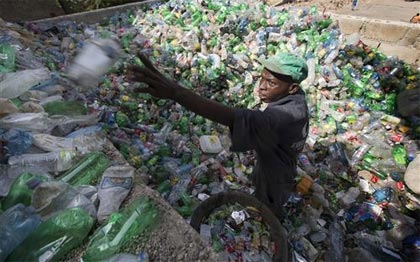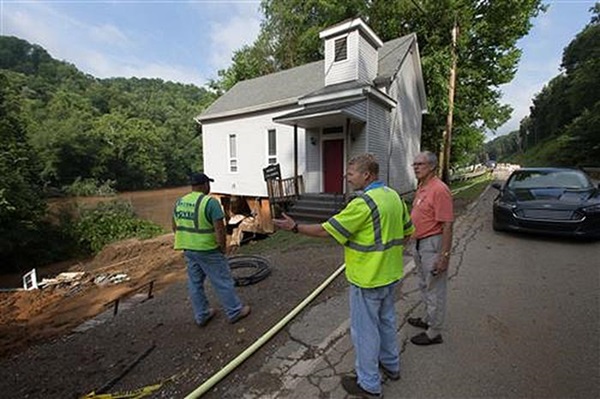The United Methodist Committee on Relief (UMCOR) is the General Board of Global Ministries' disaster response and development arm. Founded in 1940 amid the devastation and suffering resulting from World War II, the agency has gained much experience in its 77 years, realigning and refining its ministries over time. Yet its basic mission has remained the same—to reach vulnerable people with life-saving ministries regardless of their race, religion, creed, origin, or culture.
A cornerstone of UMCOR's ministry is Disaster Response—including both international and US-based disaster-response coordination. In either case, UMCOR works through partner organizations that are already present in a region—annual conferences in the United States and Methodist or ecumenical connections internationally, as well as local or international nongovernmental organizations (NGOs).
UMCOR responds to requests for help in a variety of ways, sometimes providing grants or personnel to assess disaster situations.
 |
| Janvier Jackson sorts plastic bottles for a recycling program sponsored in part by the United Methodist Committee on Relief in Port-au-Prince, Haiti. Photo by Mike DuBose/United Methodist Communications. |
UMCOR has developed training programs for disaster response teams in the United States and workshops on humanitarian assistance, disaster risk reduction (DRR), and the UMCOR grants process internationally.
More typical of UMCOR's DRR work are the partnerships it forms with organizations around the world to conduct community assessments and small-scale mitigation efforts. Identifying and finding solutions for risky situations before disaster strikes can save many lives and minimize some of the damage.
Another cornerstone of UMCOR's ministry is its development work, which concentrates on building resources within communities for better nutrition, sustainable agriculture, food security, and water—including access to clean water, sanitation, and hygiene (WASH). The WASH and agricultural programs have been integrated with the work of Global Health to provide a more holistic response for health ministries.
Some projects are accomplished through grants that support the work of partnership organizations and ecumenical groups, but UMCOR also works directly in some communities through its country offices
Priorities depend on the expressed needs of the community and the resources that are available.
The founders of UMCOR believed the relief agency would accomplish its designated tasks after World War II and eventually end its work in their lifetimes. For this reason, funding for the original Methodist Committee for Overseas Relief (MCOR) was not generated from shared apportioned funds but financed by voluntary gifts from Methodists across the United States.
Today, wars and conflicts continue to erupt, natural disasters have intensified, and there are more migrants and refugees traveling across the earth than ever before. Although many mainline Protestant denominations have developed relief ministries, Thomas Kemper notes that The United Methodist Church is the only denomination that has kept the disaster and development arm as part of its mission agency. "This is very Wesleyan," Kemper said, "keeping works of piety and mercy together. It creates a healthy tension for us, but also is a testimony to the world."
Christie R. House, editor of New World Outlook magazine.
One of six churchwide Special Sundays with offerings of The United Methodist Church, UMCOR Sunday calls United Methodists to share the goodness of life with those who hurt. Your gifts to UMCOR Sunday lay the foundation for the United Methodist Committee on Relief (UMCOR) to share God's love with communities everywhere. The special offering underwrites UMCOR's "costs of doing business." This helps UMCOR to keep the promise that 100 percent of any gift to a specific UMCOR project will go toward that project, not administrative costs.
When you give generously on UMCOR Sunday, you make a difference in the lives of people who hurt. Give now.





